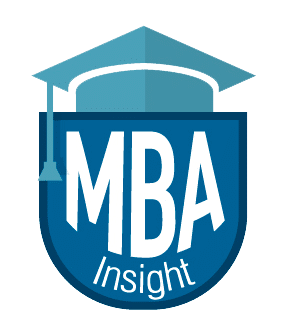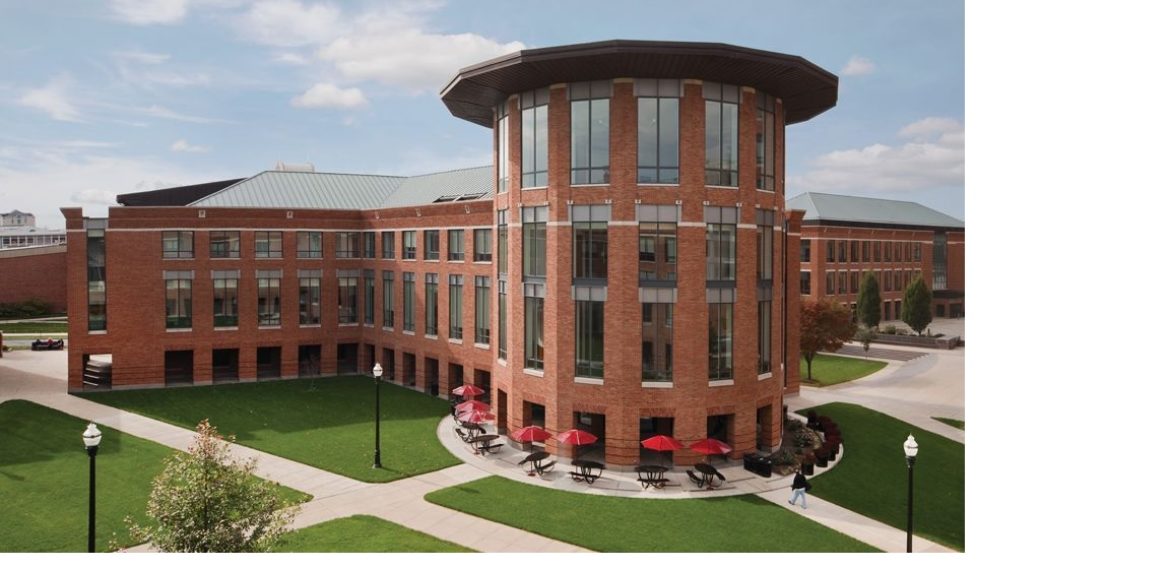Fisher College of Business- OSU
Julee Conrad, Sr. Asst. Dir., MBA Admissions, Fisher College of Business What is the one area of your program that you wish applicants knew more about? It is surprising to many applicants that while The Ohio State University is one of the largest universities in the United States, our MBA program is relatively small. This is a huge benefit to our students because they get the one-on-one attention and close-knit community of an intimate program but all of the extensive resources that a main university like Ohio State has to offer. It is easy to see the reach of our program when you travel the world and encounter over 600,000 living Ohio State alumni! We also have the benefit of our location in Columbus, Ohio – one of the fastest growing cities in the U.S. Columbus has a robust business community and a cost of living that is below the national average. This makes it the perfect place to be an MBA student. What’s the single most exciting development, change, or event happening at you MBA program this coming year? We are excited to announce two new areas of specialization for the 2017-2018 academic year: Technology Entrepreneurship and Sports Management. A big change this year is our shift to increasing flexibility and customization – in the past, students were required to select a prescribed major and now, you can customize your curriculum to meet your individual educational objectives. If you want to specialize in finance, marketing or operations, for example, you can, or you can take a general management approach. If you want to focus on health care administration, non-profit management, business analytics or design and innovation, you can take courses both within the Fisher College of Business and within the larger university to round out your MBA curriculum. Additionally, the bold, new strategic plan of the Dean has propelled us to undertake a curriculum redesign to construct the MBA of the future for the next academic year. We’re thrilled about this initiative and look forward to sharing more information about it soon. Walk us through the life of an application in your office from an operational standpoint. What happens between the time an applicant clicks “submit” and the time the committee offers a final decision (e.g. how many “reads” does it get, how long is each “read,” who reads it, does the committee convene to discuss it as a group, etc.) After an applicant clicks “submit” on their application and submits all required application materials, it takes about 4-6 weeks to hear back from the Admissions Committee. Since we work on a rolling application cycle, candidates who submit an application prior to posted deadlines will likely hear from us more quickly than if submitted right on the date of a deadline. The Admissions Committee works together to thoroughly review each applicant by reading application materials individually as well as reviewing as a group. You will hear via email if you have been invited for an admissions interview. Interviews are by invitation only, and we prefer to have you interview on campus if you are able. Our on-campus interview day consists of an Admissions Interview, an interview with Career Management, lunch with current MBA students, a class visit, and a campus tour. Candidates receive an admissions decision one to two weeks after an interview. How does your team approach the essay portion of the application specifically? What are you looking for as you read the essays? Are there common mistakes that applicants should try to avoid? One key thing they should keep in mind as they sit down to write them? One common mistake I find in the application essay portion is that applicants are trying to make their essay sound like an MBA essay. It is much easier to read an essay that is written from the heart and in the applicant’s own voice. When you sit down to write, try to envision having a conversation with a person from the Admissions Committee. What do you really want to convey to them? Of course you should have someone else proofread your essays for any spelling or grammar mistakes but you should also think about making your essay specific to that particular school. If it is easy to remove the school name and drop in any other business school, then it is probably a bit to general. Also be sure you are not using the wrong school name in an essay! Do you have any application tips (for essays & recommendations) for MBA applicants? I absolutely recommend being genuine and honest with yourself. The only way you can find the best MBA program for you is to be true to yourself about what you want from a program and to be honest and genuine in your application essays. It can feel a bit like a soul-searching process to write essays about your future and to talk about your goals for the program, but it will ultimately help you hone in on what your MBA interests may be. What are the most important aspects of the MBA application process besides GMAT score, prior GPA and current job position? Fisher’s Admissions Committee really does take a holistic approach to the application process and is trying to evaluate you as a person and potential contributor to the MBA program. To make an informed admissions decision, the Committee must know more about you than just your test scores. We want to be sure that you will be able to handle the academic rigor of the MBA program but it is equally important to know that Fisher is the best fit for your career goals, personality, and desired MBA outcomes. Fisher has an intentionally small MBA program, and every single person makes a big impact. This is why an admissions decision cannot be made until we have all application materials. Each of these items helps us to understand a bit more about you as a candidate. The final piece of that puzzle is the admissions interview when we can talk more in depth about your previous experiences and career goals. How can a candidate overcome a lower GMAT score? MBA applicants tend to forget that they have much more to offer than just a standardized test score. I think this is due to the fact that the GMAT (or GRE) is one of the aspects you are focusing so intently on in the present moment. Keep in mind that a school’s GMAT average is just an average and not a minimum but if you believe you can do better than your first score, there is no harm in taking the test again. Fisher also has an optional supplemental essay section so you are able to address any perceived areas of weakness in your application to provide additional information. What resources are available at your MBA program to assist with internship and full-time job opportunities? Fisher’s Office of Career Management is consistently ranked as one of the very best in overall career outcomes. Before even setting foot on Fisher’s campus, our admitted MBA students are matched with a Career Consultant based on their area of interest. This Career Consultant helps you throughout the entire 2 year program, first to find a summer internship and then to secure full-time employment. Your Career Consultant meets with you one-on-one but also gives you access to a multitude of resources including online job boards, personality assessments, salary benchmarking information, mock interviews, on-campus seminars, and introductions to alumni, just to name a few. Additionally, The Ohio State University has regular recruiting fairs and activities with many Fortune 500 companies represented right on our business campus.


